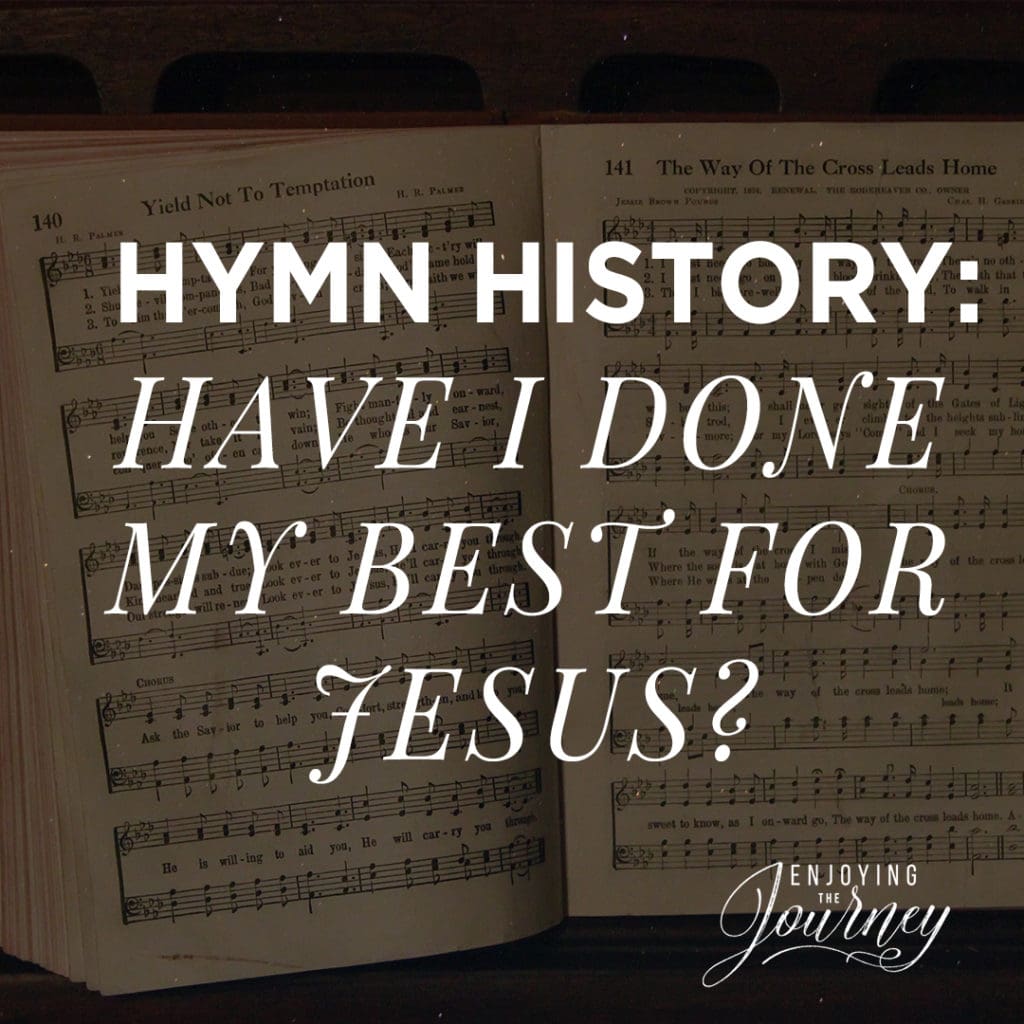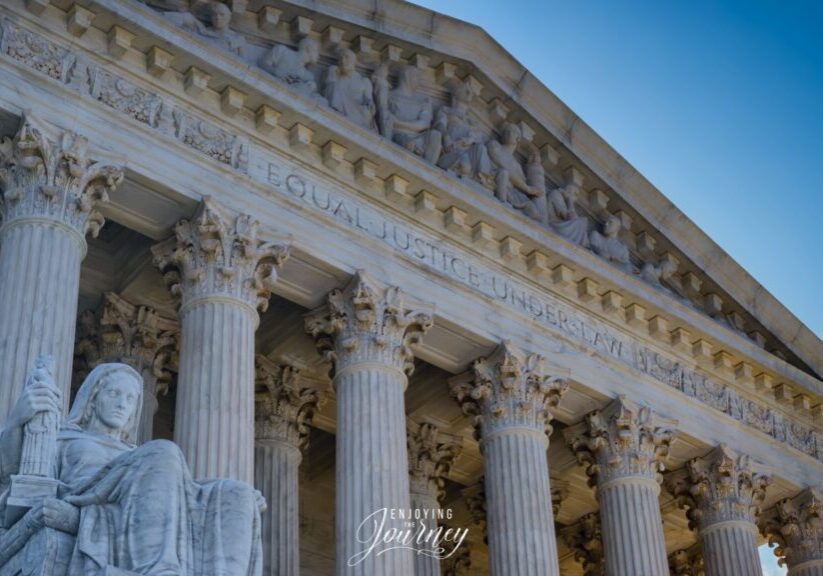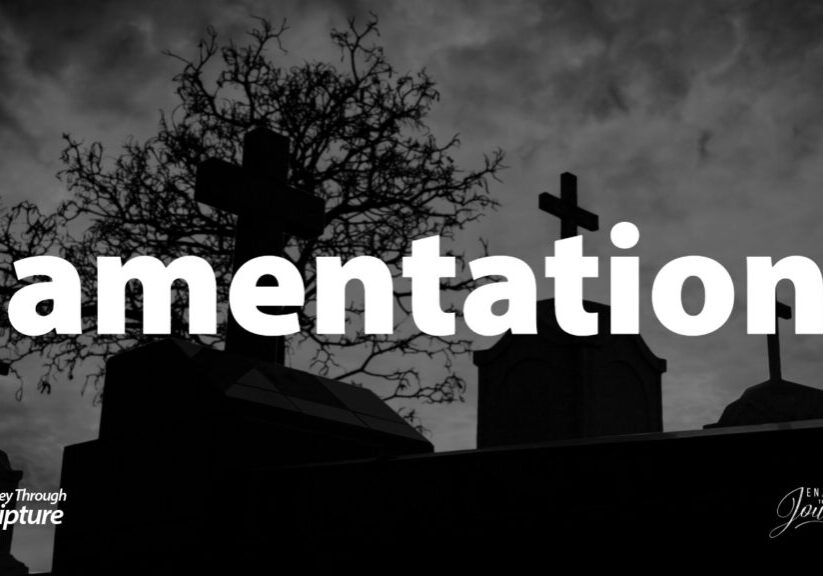
“Whether therefore ye eat, or drink, or whatsoever ye do, do all to the glory of God.” – 1 Corinthians 10:31
We are thrilled to share a series of brief accounts of how some of the great hymns of our faith were written. Each synopsis has been compiled through the research of Jerry Vargo and is shared by permission. It is our hope that these stories will be a help and encouragement to your Christian walk. This week we read the story behind a challenging and stirring hymn, “Have I Done My Best For Jesus?”
_______________________________________________________________________________________
What exactly is a hero? Certainly Edward Spencer would qualify. He was a student at Northwestern University in Chicago, Illinois in 1860.
On September 8, 1860, the steamship Lady Elgin collided with the schooner Augusta in the waters of Lake Michigan near Waukegan, Illinois. The Lady Elgin was carrying more than 300 passengers and crew on a round-trip sightseeing tour from Milwaukee to Chicago. Its return trip was never completed. The captain, not realizing how badly the ship was damaged, continued toward Milwaukee in the dark. About a half-hour later, the heavy boilers and steam engine broke through the weakened hull and the ship quickly tore apart. Most of the passengers and crew died. Only a handful reached the lifeboats. “Just when the Lady Elgin took her final plunge,” the captain recalled, “a heavy wave took off the upper works, the cabin floated, and several hundred people got onto this.”
An experienced swimmer and student lifeguard, Edward Spencer, had a rope tied to his body, and time after time swam through the waves to grab exhausted passengers. His fellow students on the other end of the rope then pulled him and the victim to shore. Finally, having reached the limits of his strength, his body covered with scrapes and bruises, Spencer passed out. He is credited with saving 17 people, one by one, finally collapsing in utter exhaustion. It is reported that, as he lay all night in the infirmary, he repeated over and over, “Did I do my best, fellows? Have I done my best?”
Although he tried to resume his studies, the physical and emotional toll on Spencer had been severe. Newspapers around the nation praised his deeds but he was never comfortable with the attention. The faces and cries of the victims he had not been able to save forever haunted him. Spencer never completed his education, and it was almost fifty years before he returned to Evanston to talk about the wreck of the Lady Elgin.
Spencer is honored by a plaque in the gymnasium of Northwestern University. But there are a couple of sad footnotes to his story. He was so badly injured that he spent the rest of his life in a wheelchair. And when visited in later years he said with tears, “Not one of those rescued ever came back and even said thank you.” Though he undoubtedly did not rescue them in order to earn their gratitude, it is a sad commentary on our frequent failure in this area.
In 1924, Ensign Edwin Young heard Spencer’s story and published a song that draws a spiritual lesson from the incident. Young served as Dean of the School of Music at Hardin-Simmons University, which was founded as Abilene Baptist College in Texas. His song raises the penetrating question, I Wonder Have I Done My Best for Jesus?
1. I wonder, have I done my best for Jesus,
Who died upon the cruel tree?
To think of His great sacrifice at Calv’ry!
I know my Lord expects the best from me.
Refrain:
How many are the lost that I have lifted?
How many are the chained I’ve helped to free?
I wonder, have I done my best for Jesus,
When He has done so much for me?
2. The hours that I have wasted are so many,
The hours I’ve spent for Christ so few;
Because of all my lack of love for Jesus,
I wonder if His heart is breaking too. [Refrain]
3. I wonder, have I cared enough for others,
Or have I let them die alone?
I might have helped a wand’rer to the Saviour,
The seed of precious Life I might have sown. [Refrain]
4. No longer will I stay within the valley–
I’ll climb to mountain heights above;
The world is dying now for want of someone
To tell them of the Saviour’s matchless love. [Refrain]
Discover more from Enjoying the Journey
Subscribe to get the latest posts sent to your email.







Very heart searching hymn.
If there was no forgiveness for my faillings I would be most discourage.
But there is in Him, so I can go on singing.